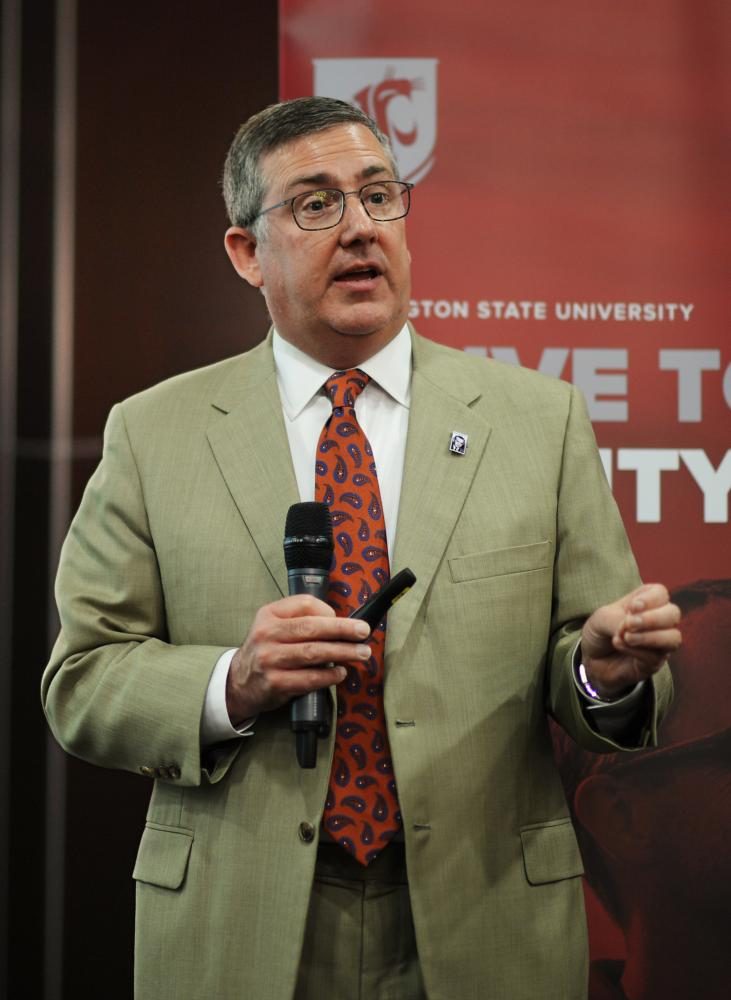‘Drive to 25’ town hall meetings begin
ZACH RUBIO | The Daily Evergreen
WSU President Kirk Schulz speaks at the “Drive to 25” town hall Tuesday afternoon.
September 6, 2017
President Kirk Schulz and Provost Dan Bernardo kicked off the month-long “Drive to 25” town hall series Tuesday with school-specific meetings at the College of Veterinary Medicine and the College of Business.
The “Drive to 25” is a campaign to place WSU in the top-25 research institutions by 2030. At the College of Business meeting, Bernardo led the conversation on the lack of diversity on campus. He talked about attracting more international students, who make up 7 percent of the student population.
WSU revamped a pathway program for those students, Bernardo said. The program offers language training and international student-specific courses in a number of degrees.
Pathway programs help international students “survive academically in an American school,” Bernardo said. There will be more of an emphasis on campus climate, by focusing on diversity and inclusivity, Bernardo said.
In response to students who wanted more faculty and staff members of color, he said WSU will try to bring in more students of color, and seek to offer more staff from different demographics.
Not only will there be more students from different ethnic backgrounds, Bernardo said, but also of different political beliefs and socioeconomic backgrounds.
Schulz spoke of the achievements made by the College of Veterinary Medicine. Professor Katrina Mealy was selected as a fellow to the National Academy of Inventors, and professor Jon Oatley was selected to lead a team for WSU’ Functional Genomics Initiative.
Schulz and Bernardo also focused on the Drive to 25’s significance to the WSU campus, along with budget issues the administration is having difficulties with.
Schulz said the budget was decreasing, but also mentioned the plan to solve the issue. It includes new budget reviews, recovery in overspent units, exploring new revenue-generating opportunities and critical review of new and vacant positions, he said.
Reporting by Lynn Nguyen and Madison Williams






















